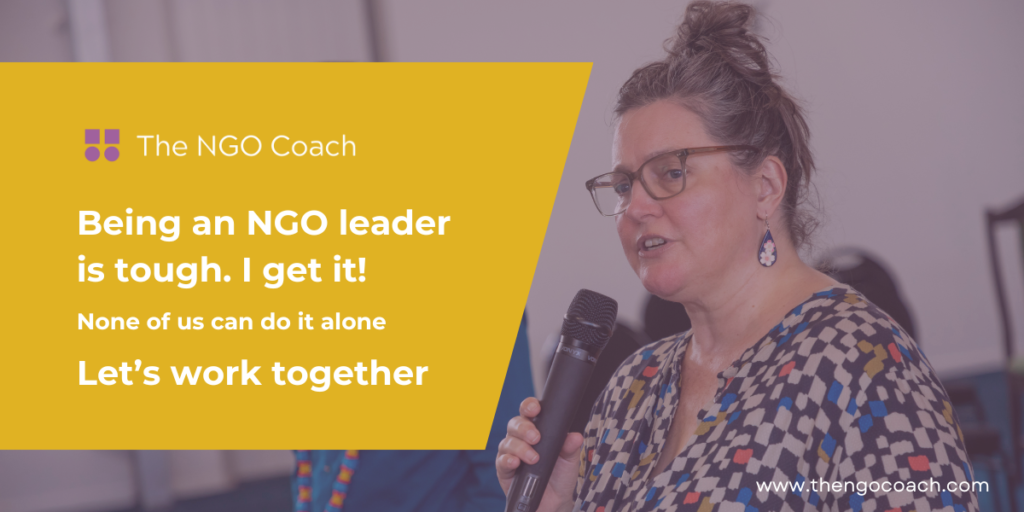Sleep is the most essential tool in your toolbox as an NGO leader. Are you waking up at 3 am and running through your to-do list? You’re not alone! Without rejuvenating sleep, your body will find it increasingly difficult to make it through the day.
I’ve spent a few years working hard to get my sleep back to at least part way what it used to be. It’s taken a lot of trial and error, and there has been no quick fix (sadly!). Something that works one night may not work the next.
The high-stress environments I was working in significantly impacted my sleep. It was a slippery slope of being unable to relax, staying up late as I was ‘wired but tired,’ continually tossing and turning, and lying awake for a long time in the early hours. Long-term stress can be, quite literally, a killer!
It’s been six months since I left my last NGO role. My nervous system now finds living in the parasympathetic mode (‘rest and digest’) much easier than the sympathetic mode (‘fight or flight’). Living off cortisol for many years takes much un-doing.
Here are some tips that have worked for me to gain some of my precious, restful sleep back:
1. Preparing for bed
I start thinking about bed a couple of hours before I get into it—I make sure I eat at least 2 hours before I’m ready to turn in so I’m not trying to sleep and digest simultaneously. I keep my liquid intake to earlier in the night, making me less likely to wake up and want to pee in the middle of the night. I like to turn down the lights to help my melatonin levels recognize that the day is ending. I try to do relaxing things rather than playing on my phone or watching the telly, as they both emit blue light, which can screw with my circadian rhythm. It’s a constant balancing act.
2. Avoiding stimulating activities
I keep significant conversations to earlier in the evening. I like to prepare to switch my brain off around 9 p.m., not stimulating it with things that restart my thinking. No reading the news. No email checking. No making to-do lists. I am not thinking about work things at all. I keep any conversations relaxing as I switch off.
3. Maintaining a consistent schedule
I’ve finally started going to bed at the same time each night and getting up at the same time each morning, which helps keep my circadian rhythm in sync. It’s been quite a revelation. Mainly because I usually never keep a regular schedule.
4. Prioritizing 8 hours of sleep
I make sure I’m in bed at least 8 hours each night—I’ve had to re-teach my body how to relax. My body likes a schedule, even if I’m not asleep the whole time. I’m always super proud of myself when I get 8 hours of sleep on any given night. I’ve started using a sleep tracker to see how I’m doing.
5. Stretching before bed
Ideally, I’ll do some stretches before getting into bed. Stretching my muscles helps release any tension I may be holding. I notice a difference when I don’t do this. It’s also easy to do in bed, which seems a little less effort.
6. Using magnesium
I take magnesium before bed, which helps relax my muscles and my brain. I’m a big fan of magnesium gummies, which are like having lollies before bedtime! I’ve also found magnesium powder helpful.
7. Relieving tension
I use a mild anti-inflammatory to help my muscles relax if I’m carrying a lot of tension. This means less tossing and turning during the night.
8. Reading a book
Reading a book helps relax my mind—I’m a big fan of my Kindle, which doesn’t have vibrating pixels, and I can turn the light down when I get into bed. I DO NOT read on my phone (vibrating pixels again!).
9. Removing my phone from the bedroom
I keep my phone away from my bed, preferably out of the bedroom—those vibrating pixels screw with my circadian rhythm. The blue light undoes me telling my brain it’s time for sleep.
10. Getting sunlight in the morning
When I wake up, I go outside for at least 10 minutes in the first hour—this helps regulate my melatonin levels.
Remember, prioritizing sleep, especially good sleep, is crucial for your well-being. Taking care of yourself is not selfish—it’s vital for your well-being and ability to continue succeeding as an NGO leader.
Sleep well,
Rochelle x


